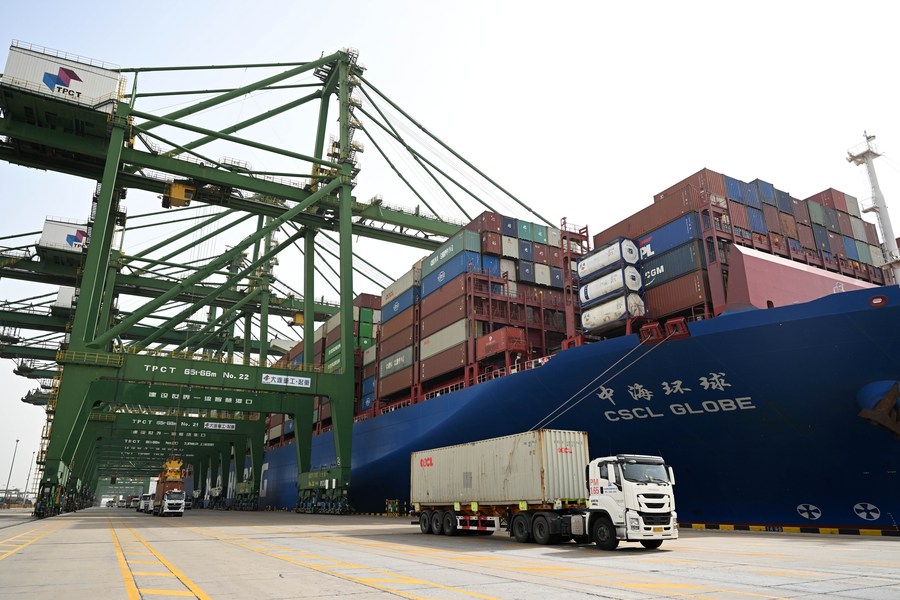
As was recognized and reaffirmed by all the participants at the Asia-Pacific Economic Cooperation Leaders' Meeting in San Francisco in November, a shared commitment to inclusiveness has been fundamental to Asia-Pacific's dynamic development, which has seen it become the powerhouse for the global economy.
If the enormous potential and tremendous dynamism across the region are to be fully unleashed, it is crucial, as the gathered leaders stated in their joint declaration, that fidelity to unity of purpose be upheld. It is disheartening therefore, if not alarming, that for some countries their pledges to the common undertaking of inclusive development are proving to be nothing more than lip service.
Instead of upholding inclusivity and peace in the region, Australia, Japan and the United States, along with the US' loyal extra-regional follower, the United Kingdom, seem intent on stoking confrontation in the region and disrupting regional peace and stability to serve their own narrow interests.
This was made clear on Monday, when the defense chiefs of the US, the UK and Australia announced their plan to include Japan in their controversial trilateral security alliance. In a joint statement they released on Monday, the three AUKUS allies announced that they are considering bringing Japan into their grouping to participate in so-called Pillar II projects.
While the first pillar of AUKUS aims to help Australia acquire nuclear-powered submarines, as well as deepen cooperation on a range of other advanced defense technologies, the second pillar, peddled by US officials recently, has a clear strategic intention to involve more countries in the security pact, with a focus on delivering advanced capabilities and sharing technologies across a range of areas including quantum computing, artificial intelligence and cyber technologies.
Japan, widely deemed to be the most important US ally in the Asia-Pacific region and harboring the ill-intention of reviving its militarist past, has been an enthusiastic embracer of the US' divisive "Indo-Pacific" strategy, frequently making provocative moves or remarks over the maritime disputes in the East and South China seas. Like the US, its meddling in these issues has become a destabilizing factor in the region. It is irresponsible of the AUKUS countries to send a wrong message by endorsing Japan's militarist and trouble-making ambitions.
Since its establishment in September 2021, the AUKUS alliance has drawn wide criticism within the international community, with many countries in Asia voicing strong opposition to it promoting nuclear proliferation in the region and fanning bloc confrontation with its exclusive clique building.
In the short time since it was formed, the trilateral alliance has already undermined the denuclearization efforts in the region. Now it seems intent on sabotaging the APEC consensus and mission.
Driven by its stubbornly persistent Cold War zero-sum mentality, the US is encouraging other countries in the region to break faith with the APEC goals by fabricating false narratives. This imperils the very fabric of regional peace and stability.
Last week, US Deputy Secretary of State Kurt Campbell laid bare the destabilizing nature of AUKUS by telling a Washington-based think tank that AUKUS' submarine capabilities "have enormous implications in a variety of scenarios, including in cross-Strait circumstances".
That the Taiwan question is strictly an internal affair of China is obviously immaterial to the US. As such, the world should exercise high vigilance toward the US' designs for an enlarged AUKUS, which, in heralding an Asia-Pacific NATO, presage catastrophe for all. Countries should join hands to try and get the misguided genie of AUKUS back in the bottle before it does any irredeemable mischief in the region.


